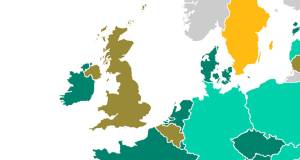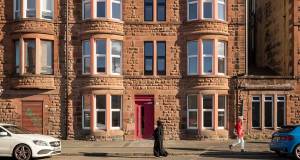- Government
- Posted
Ryan welcomes ESB greening
Energy Minister Eamon Ryan has welcomed the approval by the Board of ESB of a Strategic Framework to 2020 which should see the electricity supplier halve its carbon dioside emissions.
Minister Ryan’s statement of 13 March outlined his plans for the future of Ireland’s electricity sector. The ‘programme of change’ announced by the Minister identified the key role of the state energy companies in achieving the Government’s priorities.
Minister Ryan said “The Programme for Government has committed Ireland to move to a greener energy future. We pledged to deliver new renewable energy supplies and to dramatically improve our efficient use of that energy. The Government has already taken major steps forward with the introduction of new price supports for renewable electricity and energy efficiency tax measures. Today, as the ESB takes the historic decision to become a green utility company, it is clear that the programme of change is well and truly underway.
I am confident that ESB are well placed to push this new progressive agenda to successful completion. This plan plays to ESB’s traditional strengths – their history of engineering expertise and proven track record in project delivery. In solving our climate change and energy security challenges at home, the company will also gain new expertise that should ensure their continuing success in international markets.
The company’s commitment to a new low carbon future is a signal that every business, every farm, every home and every institution in the state should move in the same direction. Every home in Ireland will have a smart meter in the next five years and smart networks will allow small scale generators to sell their electricity back to the national grid.
Taking on this agenda will help us reduce our dependence on imported fossil fuels and will cut our greenhouse gas emissions. Today’s decision by the ESB board will help secure the future of the company, the Irish economy and our environment.”
ESB announced last week that the company is to embark on an unprecedented capital investment programme of €22 billion.
The Board of ESB has approved a Strategic Framework to 2020 that will see major company investment in renewable energy, the halving of its carbon emissions within 12 years, and the achievement of carbon net-zero by 2035. Fifty percent of the overall investment package is geared towards investments in what ESB calls "our renewable future". €4billion of this will apparently be directly invested in renewable energy projects, with €6.5billion to be spent facilitating renewables including smart metering - presumably with a net metering function - and smart networks.
The plan, which it is hoped will establish ESB as a world class renewables company, makes emissions reduction and energy efficiency central to its ambitious targets.
By 2020, ESB aims to bel be delivering one-third of its electricity from renewable generation. This will include over 1,400 megawatts of wind generation, in addition to wave, tidal and biomass. To promote this, the company will invest in emerging green technologies.
ESB says that the €11 billion to be invested in its networks will ensure continued efficient delivery of the vital infrastructure needed to support the Irish economy. It will also apparently facilitate the development of up to 6,000 megawatts of wind on the island.
ESB further states that it will maintain its market share of power generation at well below 40 percent to facilitate continuing competition in the energy market. Completion of the present closure/divestment of 1500 megawatts of its stations and sites will assist this process. ESB will continue to enhance plant availability and performance in line with EU norms.
In an effort to meet new financial challenges, ESB is aiming to drive substantial cost reductions in overheads across all its businesses. Strong financial performance and continuing rigorous funding will underpin the investment plan while achieving shareholder and customer value.
Preparing for competition in the retail market, ESB will focus on delivering energy conservation and new initiatives on energy efficiencies. The company will also invest in more generation plants and renewables in Britain and further plants in Europe.
ESB Chairman, Lochlann Quinn, said the Strategic Framework to 2020 addresses ESB's response to those major imperatives now demanding action.
"ESB is operating in a dramatically changing environment. Three overarching concerns now exist - the consequences of climate change, energy security and competitiveness of energy supply and ESB is strong, focussed and prepared to deal with them", Mr Quinn said.
ESB Chief Executive, Padraig McManus, said ESB had demonstrated its ability to execute strategic change in the past while maintaining profitable growth.
"ESB is now entering a new period of particular challenge that we embrace with enthusiasm and vigour. This robust plan will deliver tangible and sustainable results for the economy as we face global challenges in a coherent and managed way. It positions us as a leading energy company in Europe", he said.
Minister Ryan said “The Programme for Government has committed Ireland to move to a greener energy future. We pledged to deliver new renewable energy supplies and to dramatically improve our efficient use of that energy. The Government has already taken major steps forward with the introduction of new price supports for renewable electricity and energy efficiency tax measures. Today, as the ESB takes the historic decision to become a green utility company, it is clear that the programme of change is well and truly underway.
I am confident that ESB are well placed to push this new progressive agenda to successful completion. This plan plays to ESB’s traditional strengths – their history of engineering expertise and proven track record in project delivery. In solving our climate change and energy security challenges at home, the company will also gain new expertise that should ensure their continuing success in international markets.
The company’s commitment to a new low carbon future is a signal that every business, every farm, every home and every institution in the state should move in the same direction. Every home in Ireland will have a smart meter in the next five years and smart networks will allow small scale generators to sell their electricity back to the national grid.
Taking on this agenda will help us reduce our dependence on imported fossil fuels and will cut our greenhouse gas emissions. Today’s decision by the ESB board will help secure the future of the company, the Irish economy and our environment.”
ESB announced last week that the company is to embark on an unprecedented capital investment programme of €22 billion.
The Board of ESB has approved a Strategic Framework to 2020 that will see major company investment in renewable energy, the halving of its carbon emissions within 12 years, and the achievement of carbon net-zero by 2035. Fifty percent of the overall investment package is geared towards investments in what ESB calls "our renewable future". €4billion of this will apparently be directly invested in renewable energy projects, with €6.5billion to be spent facilitating renewables including smart metering - presumably with a net metering function - and smart networks.
The plan, which it is hoped will establish ESB as a world class renewables company, makes emissions reduction and energy efficiency central to its ambitious targets.
By 2020, ESB aims to bel be delivering one-third of its electricity from renewable generation. This will include over 1,400 megawatts of wind generation, in addition to wave, tidal and biomass. To promote this, the company will invest in emerging green technologies.
ESB says that the €11 billion to be invested in its networks will ensure continued efficient delivery of the vital infrastructure needed to support the Irish economy. It will also apparently facilitate the development of up to 6,000 megawatts of wind on the island.
ESB further states that it will maintain its market share of power generation at well below 40 percent to facilitate continuing competition in the energy market. Completion of the present closure/divestment of 1500 megawatts of its stations and sites will assist this process. ESB will continue to enhance plant availability and performance in line with EU norms.
In an effort to meet new financial challenges, ESB is aiming to drive substantial cost reductions in overheads across all its businesses. Strong financial performance and continuing rigorous funding will underpin the investment plan while achieving shareholder and customer value.
Preparing for competition in the retail market, ESB will focus on delivering energy conservation and new initiatives on energy efficiencies. The company will also invest in more generation plants and renewables in Britain and further plants in Europe.
ESB Chairman, Lochlann Quinn, said the Strategic Framework to 2020 addresses ESB's response to those major imperatives now demanding action.
"ESB is operating in a dramatically changing environment. Three overarching concerns now exist - the consequences of climate change, energy security and competitiveness of energy supply and ESB is strong, focussed and prepared to deal with them", Mr Quinn said.
ESB Chief Executive, Padraig McManus, said ESB had demonstrated its ability to execute strategic change in the past while maintaining profitable growth.
"ESB is now entering a new period of particular challenge that we embrace with enthusiasm and vigour. This robust plan will deliver tangible and sustainable results for the economy as we face global challenges in a coherent and managed way. It positions us as a leading energy company in Europe", he said.
Last modified on Monday, 31 March 2008 13:12







